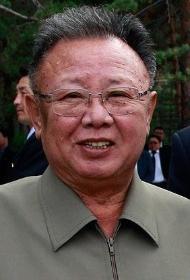Kto umawiał się z Kim Ok?
Kim Jong-il umawiał się z Kim Ok od do . roku Różnica wieku wynosiła 23 lata, 6 miesięcy i 12 dni.
Kim Ok

Kim Ok (Korean: 김옥; born 28 August 1964) is a former North Korean government employee who served as Kim Jong Il's personal secretary from the 1980s until his death in 2011. After the death of Ko Yong Hui in August 2004, she regularly met with foreign officials as the de facto first lady of North Korea, and was rumored to be the supreme leader's fourth wife.
Czytaj więcej...Kim Jong-il

Kim Dzong Il (IPA: [ɡ̊imd͜zɔŋil], kor. 김정일; ur. 16 lutego 1941 we Wiatskoje, zm. 17 grudnia 2011 w Pjongjangu) – Przywódca Korei Północnej w latach 1994–2011. Był następcą swego ojca i założyciela KRLD, Kim Ir Sena po jego śmierci w 1994 roku. Był również sekretarzem generalnym Partii Pracy Korei, przewodniczącym Narodowej Komisji Obrony, a także marszałkiem i dowódcą Koreańskiej Armii Ludowej.
Czytaj więcej...